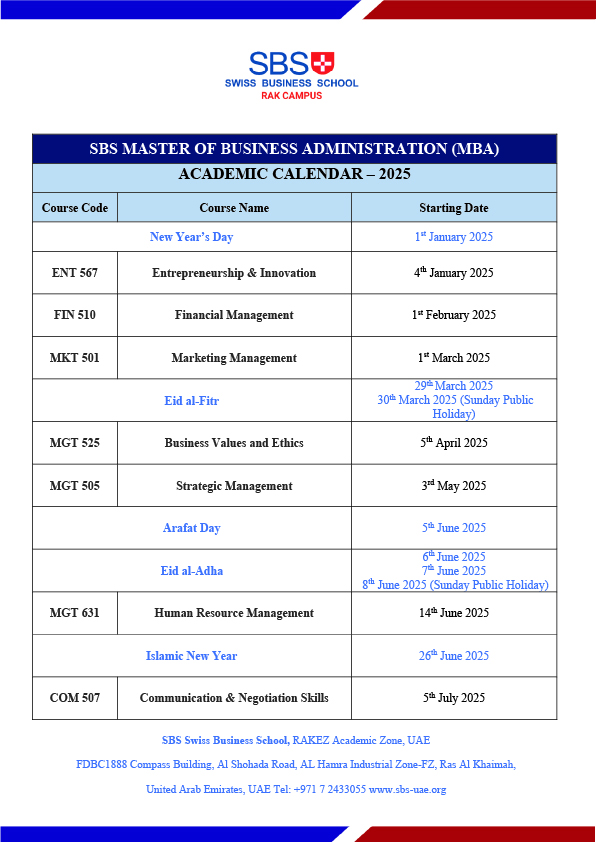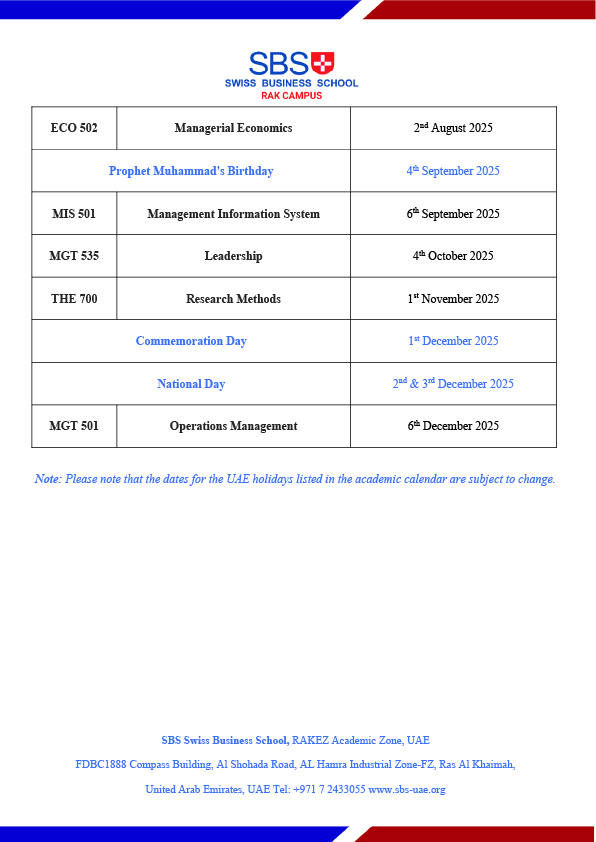Master Of Business Administration (MBA)
Courses
academic calendar
Fee Structure
Admission criteria
application form
Courses
| ENT 567 | Entrepreneurship & Innovation |
| FIN 510 | Financial Management |
| MKT 501 | Marketing Management |
| MGT 525 | Business Values and Ethics |
| MGT 505 | Strategic Management |
| MGT 631 | Human Resource Management |
| COM 507 | Communication & Negotiation Skills |
| ECO 502 | Managerial Economics |
| MIS 501 | Management Information System |
| MGT 525 | Business Values and Ethics |
| THE 700 | Research Methods |
| MGT 501 | Operations Management |
academic calendar


Fee Structure

Admission criteria
- Filled out application form
- Complete CV indicating professional experiences
- Copy of Bachelor degree
- Copy of Bachelor transcripts (grade sheet)
- Proof of English Skills (TOEFL, IELTS, Cambridge, other) unless previous education was conducted in English (otherwise SBS Swiss Business School admissions exam required!)
- Two reference letters (professional or academic) * Application fee
- Front-facing photograph, high quality in jpg/png/gif format
Notes
Admissions Exam can only be waived if the student has conducted his previous studies in English, has submitted a confirmation letter from the school stating that. Students must provide an English certificate such as IELTS – Minimum 6.0, TOEFL – Minimum 90 or Cambridge advanced certificate.application form
Application Form Link : LINK
